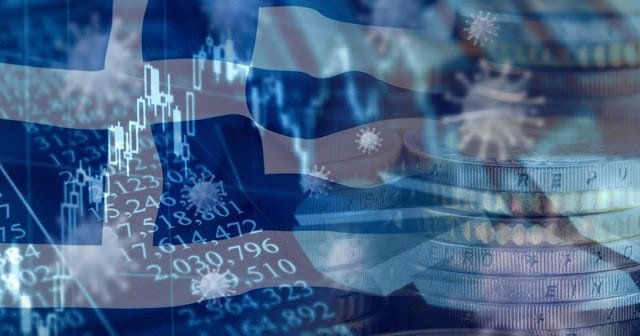
Greece plans to borrow 10-12 billion euros from the markets in 2022 with the issuance of short-term and long-term bonds, while the first issue of a “green” bond is in the works. This was stated to Reuters by government officials, as also highlighted in the report of OT.gr regarding the borrowing plan for next year. This year, the country issued 5-year, 10-year and 30-year government bonds, raising a total of over 14 billion Euros, having as its main “support”, for the extremely low interest rates, the extraordinary pandemic bond purchase program.
In particular, this year Greece raised 15.5 billion euros from purchases and through the private placement of the 30-year bond. In January 2021, Greece reissued a 30-year bond with a nominal value of 1.4 billion euros and a settlement value of 2.027 billion euros with a private placement. This was followed in February 2021 by a consortium issue of a ten-year bond of 3,500 billion euros, with a fixed interest rate of 0.75% and in March 2021 a consortium issue of a 30-year bond of 2.5 billion euros, with a fixed interest rate of 1.875%. In May 2021 syndicated issuance of a five-year bond of 3 billion euros with zero interest rate and in June 2021 the consolidated reissue of the ten-year bond of 2.5 billion euros with a yield of 0.888% followed. In September 2021, the five-year and thirty-year bonds of 1.5 and 1 billion euros were doubly reissued, respectively, with yields of 0.020% and 1.675%.
This year, analysts estimate that Greece will make its debut in January with a 10-year bond and the premiere of the green title is set for the first half of 2022. In particular, Citigroup in a recent report estimates that Greece will make five exits to the markets next year, plus one for a green government title. The premiere is scheduled to start with a new 10-year bond in January to raise 3.5 billion euros, continuing with a new 5-year bond in March to raise 1.5 billion euros, while the first quarter will end with the re- opening of the 30-year bond issued by the Greek State in 2021 for the raising of 1 billion euros Danske Bank estimates that Greece is expected to raise 12 billion euros from the markets in 2022, with bond repayments projected at 4 billion euros.
It is noted that Greece returned to the international bond markets in 2017 after being excluded for years during a ten-year debt crisis from which it finally emerged in August 2018. The main goal of the ministry remains to recover the investment level in the first half of 2023, without to be excluded to be achieved in 2022. The vehicle is the strong cumulative growth that is projected to reach 11.7% in the two years 2021-2022. If the prospects are confirmed, then the ground is being laid for Greece to drop the “junk” label, in which category it came under during the 2010 crisis.
However, the companies are expected to open their papers from the new year, although the fact that Greece is not in the investment stage does not currently cause any practical issues as Greek bond yields are very low, mainly due to strong support of the European Central Bank. The central bank has included the country in the emergency PEPP program – against the rules not to buy investment bonds. However, the PEPP will be completed next March and for the period from its end to the investment stage, analysts say that the ECB will transfer parts of the PEPP flexibility to the basic bond market program and will include Greek securities. Messages in this direction have been given by members of the ECB, as well as Greek central banker Giannis Stournaras. The governor of the Bank of Greece has even expressed the possibility that by next year the country will have acquired the investment grade. According to ECB chief Christine Lagarde, discussions on the future of the program will take place in December.
So far, S&P has upgraded the country to BB, while on the same scale BB is the rating of Fitch. Moody’s rating is lower at Ba3 with stable outlook. The autumn came in very positively as the rating agency DBRS Morningstar upgraded Greece’s credit rating by one notch to BB from BB (Low), with positive outlook. It was a week ago the upgrade by “Scope Ratings” (BB + from BB) which gave a vote of confidence to the Greek economy. It is recalled in the previous appointment, in May, Moody’s had kept silent with the assessment of Greece by the agency has not changed since November 2020 when it had upgraded by one step, from B1, with positive prospects. It is also recalled that last month the American rating agency S&P finally did not issue a report on the Greek economy, pressing a “pause” in the upgrades. With its “silence” the agency is maintaining a waiting position until the next scheduled appointment, which is in about five months. The basket was already half empty at the time regarding a move to upgrade the Greek economy, but it was not ruled out that the report may be accompanied by a “gift”.
The lending strategy according to the financial staff is built given the high cash resources, the expected increased Community disbursements and the relatively limited financial needs for 2022. The financing needs of the Greek government, according to the data, for the repayment of bonds and the payment installments of bilateral loans in 2022 amount to 10.55 billion euros compared to 48.5 billion euros this year. Debt interest expenses of the Central Administration are close to the levels of 5,500-6,200 million euros, ie around 3.1% – 3.8% as a percentage of GDP. The short-term borrowing costs of the Greek State, as reflected in the 13, 26, and 52 week bonds auctions, are at historically low levels with negative interest rates for all the duration of the issues. The staff is also preparing for the early repayment of part of the bilateral loans that Greece entered into with the eurozone countries in 2010 and the further repayment of the IMF loan of 7 billion euros. The country has already repaid about 6 billion euros in IMF loans.
Latest News

Mitsotakis Unveils €1 Billion Plan for Housing, Pensioners, Public investments
Greek Prime Minister Kyriakos Mitsotakis has announced a new set of economic support measures, worth 1 billion euros, aiming to provide financial relief to citizens.

Alter Ego Ventures Invests in Pioneering Gaming Company ‘Couch Heroes’
Alter Ego Ventures' participation in the share capital of Couch Heroes marks yet another investment by the Alter Ego Media Group in innovative companies with a focus on technology.

Corruption Still Plagues Greece’s Driving Tests
While traffic accidents continue to claim lives on Greek roads daily, irregularities and under-the-table dealings in the training and testing of new drivers remain disturbingly widespread

Pope Francis Died of Stroke and Heart Failure Vatican Confirms
As news of the official cause of death spread, tributes poured in from across the globe. The 1.4 billion-member Catholic Church is united in grief, remembering a pope who championed inclusion, justice, and compassion

Increase in Both Museum Visits, Revenues for 2024
As expected, the Acropolis was the top archeological site in the country, followed by Sounion, Mycenae, the ancient theater of Epidaurus, and Vergina in northern Greece

Where Greece’s Tourists Come From: A Look at 2025’s Top Visitor Markets
The United Kingdom continues to hold the top spot as the largest source of incoming tourism, with 5.6 million seats booked for Greece this summer — up 2.2% from last year. This accounts for 20% of all international air traffic to Greece

Pope Francis: A Pontiff Who Reshaped the Papacy and Sparked a Global Conversation
His first words from the balcony of St. Peter’s Basilica—“Brothers and sisters, good evening”—set the tone for a pontificate that would challenge norms, favor mercy over dogma, and bring the papacy closer to the people.

When Blue Skies was Unmasked as ND’s Political ‘Slush Fund’
The fact that so many top New Democracy (ND) party cadres were paid by the firm Blue Skies, owned by Thomas Varvitsiotis and Yiannis Olympios, without ever citing this publicly, raises very serious moral issues, regardless of the legality

Greek Women’s Water Polo Team Top in the World after 13-9 Win Over Hungary
The Greek team had previously defeated another tournament favorite, the Netherlands, to reach the final.
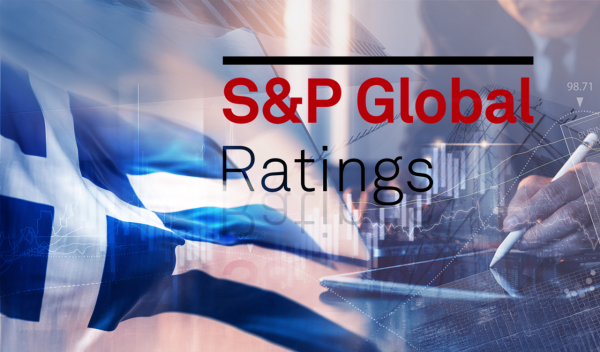
S&P Raises Greek Rating; BBB with Stable Outlook
S&P’s decision raises the Greek economy to the second notch of investment grade ladder, at BBB with a stable outlook.











![Πλημμύρες: Σημειώθηκαν σε επίπεδα ρεκόρ στην Ευρώπη το 2024 [γράφημα]](https://www.ot.gr/wp-content/uploads/2025/04/FLOOD_HUNGRY-90x90.jpg)




![Ξενοδοχεία: Μεγάλο το ενδιαφέρον για επενδύσεις στην Ελλάδα – Η θέση της Αθήνας [γραφήματα]](https://www.ot.gr/wp-content/uploads/2025/03/Athens-hotels-90x90.jpg)









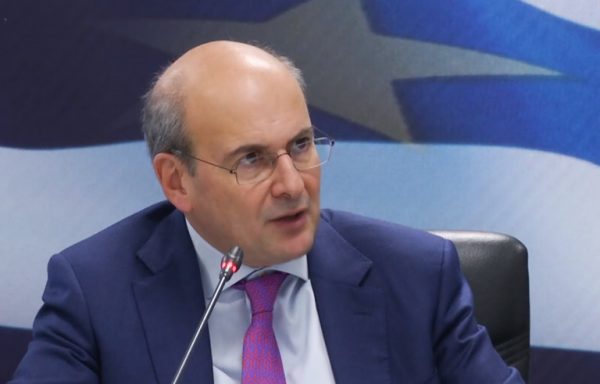



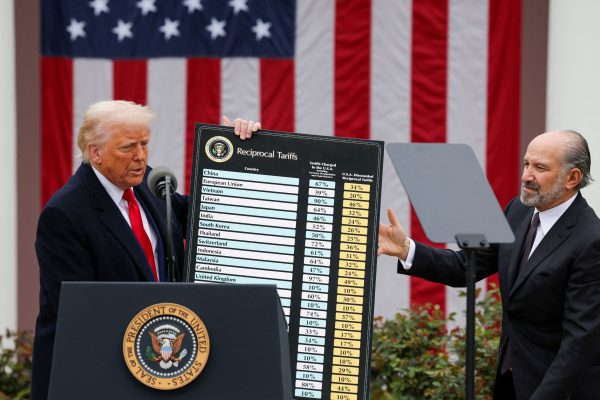
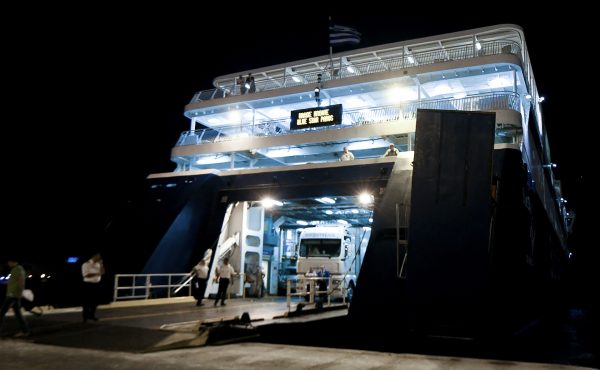









 Αριθμός Πιστοποίησης
Αριθμός Πιστοποίησης